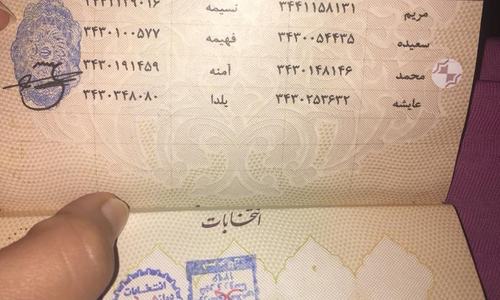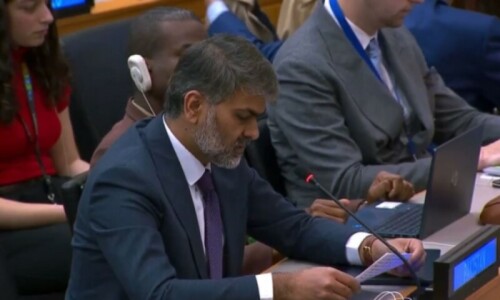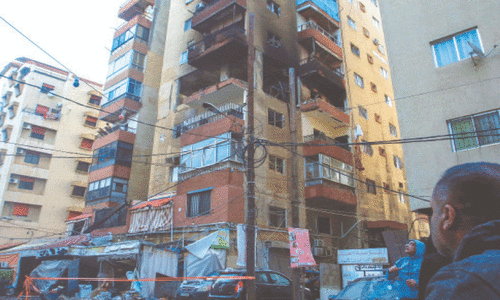ISLAMABAD: Authorities have blocked passports of over 10,000 Pakistani citizens deported from Iran for illegally entering the country with a plan to finally travel to Europe.
Sources in the Ministry of Interior confirmed that the passports of 10,454 individuals have been blocked. These Pakistanis were arrested in Iran for illegally crossing into Iran through Balochistan’s porous border.
After their arrests, the Iranian authorities handed them over to Pakistan officials at the border city of Taftan in the Chagai district.
The arrests of Pakistanis, which took place between January and December 15, highlight the increasing efforts by Pakistani youth to reach Europe via Iran, often through dangerous and unconventional routes across Balochistan.
In 2023 as many as 8,272 Pakistanis were arrested in Iran. The five districts of Balochistan — Chagai, Washuk, Panjgur, Kech, and Gwadar — share borders with Iran, making them key areas for illegal migration attempts.
Between 2020 and 2024, over 62,000 Pakistani citizens, primarily from Punjab, were arrested for illegally entering Iran from Pakistan.
Over the past one and a half years, Iran has deported more than 5,000 Pakistanis. The federal government recently made a decision to block the passports of Pakistani citizens involved in illegal migration. A few days ago, the passports of 2,470 Pakistanis involved in allegedly drug-related crimes in the UAE were blocked.
In November, the Pakistani government began blocking passports of 1,500 Pakistanis deported from Iraq, with an initial decision to block the passports of 50 individuals for seven years. According to the Ministry of Interior, over 1,500 Pakistani citizens were deported from Iraq in the past six months, and their passports will also be blocked.
In October, the Pakistan government blocked passports of 4,000 Pakistanis detained in Saudi Arabia. They were arrested for crimes such as begging in Saudi Arabia. The passports of these 4,000 Pakistani citizens have been blocked for 7 years, with more than 60 per cent of them coming from Punjab and Khyber Pakhtunkhwa.
For a long time, citizens from Pakistan and Afghanistan have been attempting to reach European countries through these routes in Balochistan. However, a large number of them get arrested in Iran.
Officials say that in the past, a large number of people used to enter Iran from Kech and Gwadar, but due to militant attacks in those areas, most of them now use the routes of Chagai and Washuk for the purpose. While many people are arrested during this journey, several also lose their lives due to the hardships along the way.
Published in Dawn, December 31st, 2024













































